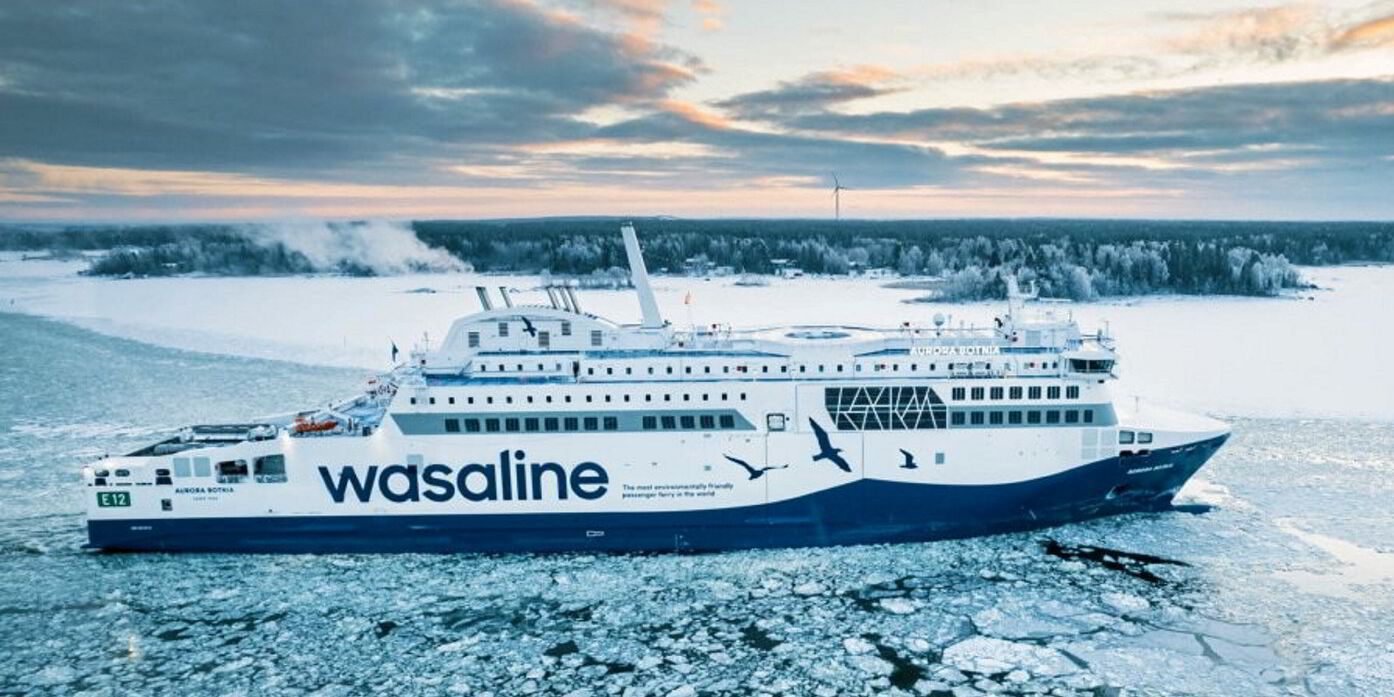Energy company Gasum and shipowner Wasaline have signed a letter of intent to build what they claim will be the first large commercial vessel pooling service to help comply with FuelEU Maritime regulations.
Wasaline would provide the over-compliance under FuelEU by running its hybrid 800-passenger ropax Aurora Botnia (built 2021), which can operate on batteries, LNG and bio-LNG, on its daily route between Finland and Sweden.
Gasum would manage the pool, supply ultra-low-emission bio-LNG and offer over-compliance to companies that operate conventionally fuelled vessels.
It said it is able to guarantee the required supply of ultra-low-emission fuel to the Finnish shipowner, and the regular route of the ferry brings predictability to the pooling service.
Under FuelEU Maritime — which applies to all ships of more than 5,000 gt calling at European Union ports from 2025 — shipowners need to reduce the carbon intensity of purchased fuel by 2% initially, ramping up to 80% by 2050.
The regulation permits the voluntary pooling of emission reductions between vessels, allowing ships that are over-compliant to compensate for the emissions on behalf of under-compliant ones.
Gasum described the pooling service as “the easiest and most reliable way for shipping companies to save on compliance costs and promote the production of low-emission fuels at the same time”.
The Finnish company, which is a supplier of bio-LNG and is planning to produce e-methane from 2027, said its customers have shown “a strong interest” in the pooling service.
Vice president of maritime Jacob Granqvist said: “Our long experience and strong relationships in the maritime market give us a competitive advantage that few other companies can provide.”
Wasaline chief executive Peter Stahlberg said: “We at Wasaline are excited by the opportunity to participate in a solution that has the potential to increase the production and use of renewable biofuels.
“We prioritise innovation and sustainability in shipping and are happy to be able to help others reduce emissions and drive the green transition forward in our industry.”
- Bio-LNG is considered nearly carbon-neutral because it is produced from organic waste flows, such as organic household and industrial waste, manure and sewage sludge.
- Synthetic LNG or e-LNG is renewable when e-methane is produced using renewable electricity and CO2, either from the air or renewable biomass.
- Both are identical to fossil LNG but are considered renewable as their upstream CO2 inputs make them carbon neutral on a well-to-wake basis.





